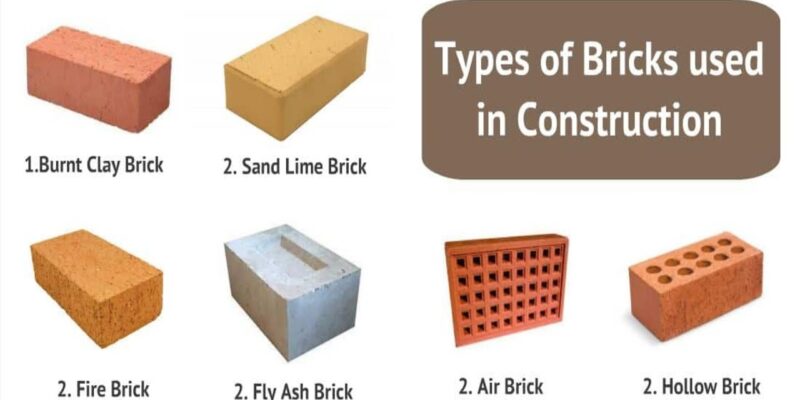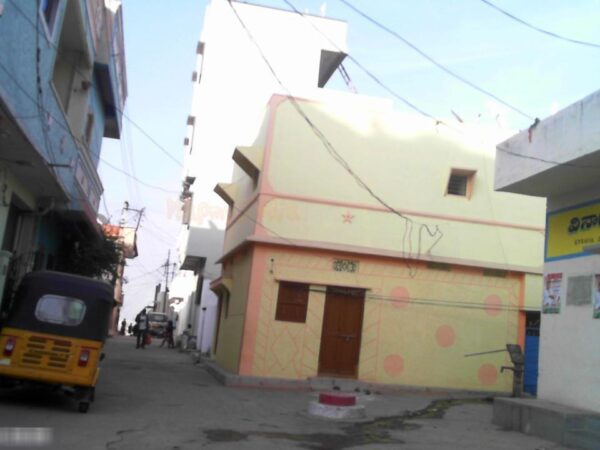Bricks have long been a fundamental building material, revered for their durability, versatility, and timeless appeal. They have adorned structures ranging from ancient monuments to modern homes, standing as a testament to their enduring value. As a homeowner, understanding the various types of brick available can empower you to make informed decisions about construction or renovation projects. In this comprehensive guide, we’ll explore seven essential varieties of types of brick, each with its unique characteristics and applications.
Common Bricks: The Foundation of Traditional Construction
Common bricks, also known as clay bricks, are the cornerstone of traditional construction. Made from clay that’s fired in a kiln, these bricks boast a classic red hue and are renowned for their strength and durability. They are commonly used in load-bearing walls, foundations, and partitions, providing structural integrity and thermal insulation to types of brick buildings.
Engineering Bricks: Superior Strength for Structural Work
Engineering bricks are engineered to withstand higher levels of pressure and moisture than common bricks. They are often denser and have lower water absorption rates, making them ideal for structural applications such as bridges, retaining walls, and basement construction. With their exceptional strength and durability, engineering bricks offer enhanced resistance to frost, chemicals, and abrasion, making them a reliable choice for various types of brick structures.
Facing Bricks: Enhancing Aesthetic Appeal
Facing bricks, also known as façade bricks, are designed for visible exterior surfaces. They come in a wide range of colours, textures, and finishes, allowing homeowners to customise the appearance of their homes. Whether it’s a rustic, weathered look or a sleek, contemporary finish, facing bricks offer versatility and aesthetic appeal. They are commonly used in residential and commercial construction to create visually striking facades using types of brick.
Fire Bricks: Protecting Against High Temperatures
Fire bricks, or refractory bricks, are specially designed to withstand extreme heat and thermal stress. Composed of refractory ceramic materials, these bricks are used in fireplaces, kilns, furnaces, and pizza ovens to contain and withstand high temperatures. Fire bricks possess excellent insulating properties and are crucial for maintaining the structural integrity of heat-intensive applications, making them indispensable for types of brick structures exposed to elevated temperatures.
Hollow Bricks: Lightweight and Insulating
Hollow bricks are characterised by their unique design, featuring hollow cores that reduce weight while improving insulation. These bricks offer a balance of strength and thermal efficiency, making them ideal for non-load-bearing walls, partitions, and infill panels. Their lightweight nature simplifies construction and transportation, while their insulating properties contribute to energy efficiency in types of brick buildings.
Sand Lime Bricks: Precision Engineered for Quality
Sand Lime bricks, also known as calcium silicate bricks, are manufactured from a mixture of sand, lime, and water. Through a precision-controlled manufacturing process, these bricks exhibit uniform dimensions, smooth surfaces, and high compressive strength. Sand Lime bricks are favoured for their durability and resistance to weathering, making them suitable for both interior and exterior applications of types of brick.
Concrete Bricks: Versatile and Cost-Effective
Concrete bricks are a versatile building material made from a mixture of cement, aggregate, and water. They offer durability, affordability, and ease of installation, making them a popular choice for various construction projects. Concrete bricks come in different sizes, shapes, and finishes, catering to diverse architectural styles and design preferences. From pathways and patios to retaining walls and decorative features, concrete bricks find numerous applications in residential landscaping and types of brick structures.
Paver Bricks: Transforming Outdoor Spaces with Durability and Style
Paver bricks, also known as paving stones or simply pavers, offer a versatile solution for outdoor hardscaping projects. These interlocking bricks come in various shapes, sizes, and colours, allowing homeowners to create customised pathways, driveways, patios, and pool decks. With their exceptional durability and weather resistance, paver bricks enhance the aesthetic appeal and functionality of outdoor living spaces, making them a popular choice for landscaping projects.
Special Shaped Bricks: Adding Character and Dimension to Architectural Designs
Special shaped bricks encompass a diverse range of customised brick shapes, including bullnose, capping, angle, and arch bricks, among others. These unique brick varieties are crafted to add character, dimension, and architectural interest to building facades, garden walls, and decorative features. Whether used for detailing window surrounds, creating curved walls, or accentuating entryways, special shaped bricks offer endless design possibilities for homeowners seeking to personalise their spaces.
Sustainable Bricks: Embracing Eco-Friendly Building Practices
Sustainable bricks, also known as eco-bricks or green bricks, are manufactured using environmentally friendly materials and production methods. These bricks may incorporate recycled materials such as fly ash, slag, or recycled aggregates, reducing the environmental impact of brick manufacturing. Additionally, sustainable brick production processes prioritise energy efficiency and waste reduction, aligning with eco-conscious building practices. By choosing sustainable bricks, homeowners can contribute to environmental conservation while enjoying durable and aesthetically pleasing building materials.
Conclusion
In the realm of construction, bricks reign supreme as a symbol of strength, resilience, and architectural ingenuity. By familiarising yourself with the diverse types of brick available, you can unlock endless possibilities for enhancing the beauty, functionality, and longevity of your home. Whether you seek structural integrity, aesthetic appeal, or thermal efficiency, there’s a type of brick suited to meet your specific needs. Embrace the timeless allure of types of brick and embark on a journey of building and innovation that stands the test of time.
Frequently Asked Questions
Q1. Are all bricks suitable for outdoor applications?
While many types of brick are suitable for outdoor use, it’s essential to consider factors such as weather resistance, moisture absorption, and freeze-thaw cycles. Facing bricks, fire bricks, and certain engineered bricks are particularly well-suited for exterior surfaces due to their durability and weatherproof qualities.
Q2. Can I use hollow bricks for load-bearing walls?
Hollow bricks are primarily designed for non-load-bearing applications due to their lightweight nature. For load-bearing walls, it’s advisable to use solid bricks or engineered bricks, which offer greater structural strength and stability.
Q3. What is the difference between common bricks and facing bricks?
Common bricks are primarily used for structural purposes, such as load-bearing walls and foundations, while facing bricks are employed for visible exterior surfaces. Facing bricks come in a wide range of colours and textures, allowing homeowners to customise the appearance of their homes.
Q4. Are fire bricks necessary for a residential fireplace?
Fire bricks are essential for constructing the firebox of a residential fireplace, as they can withstand high temperatures without cracking or deteriorating. Using standard bricks or other materials in a fireplace can pose safety hazards and compromise structural integrity.
Q5. How do I choose the right types of brick for my project?
When selecting types of brick for a project, consider factors such as structural requirements, aesthetic preferences, environmental conditions, and budget constraints. Consulting with a professional architect or contractor can also provide valuable insights into choosing the most suitable types of brick for your specific needs.
Also read: Merseyside Police Careers 101: 10 Facts You Need to Know












